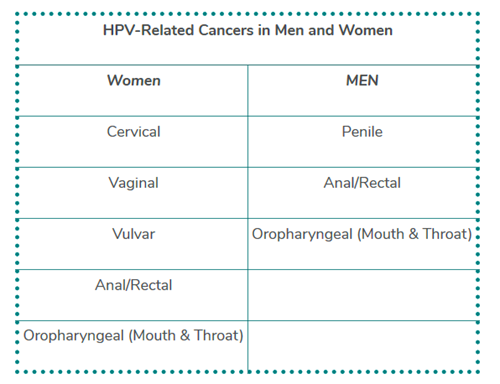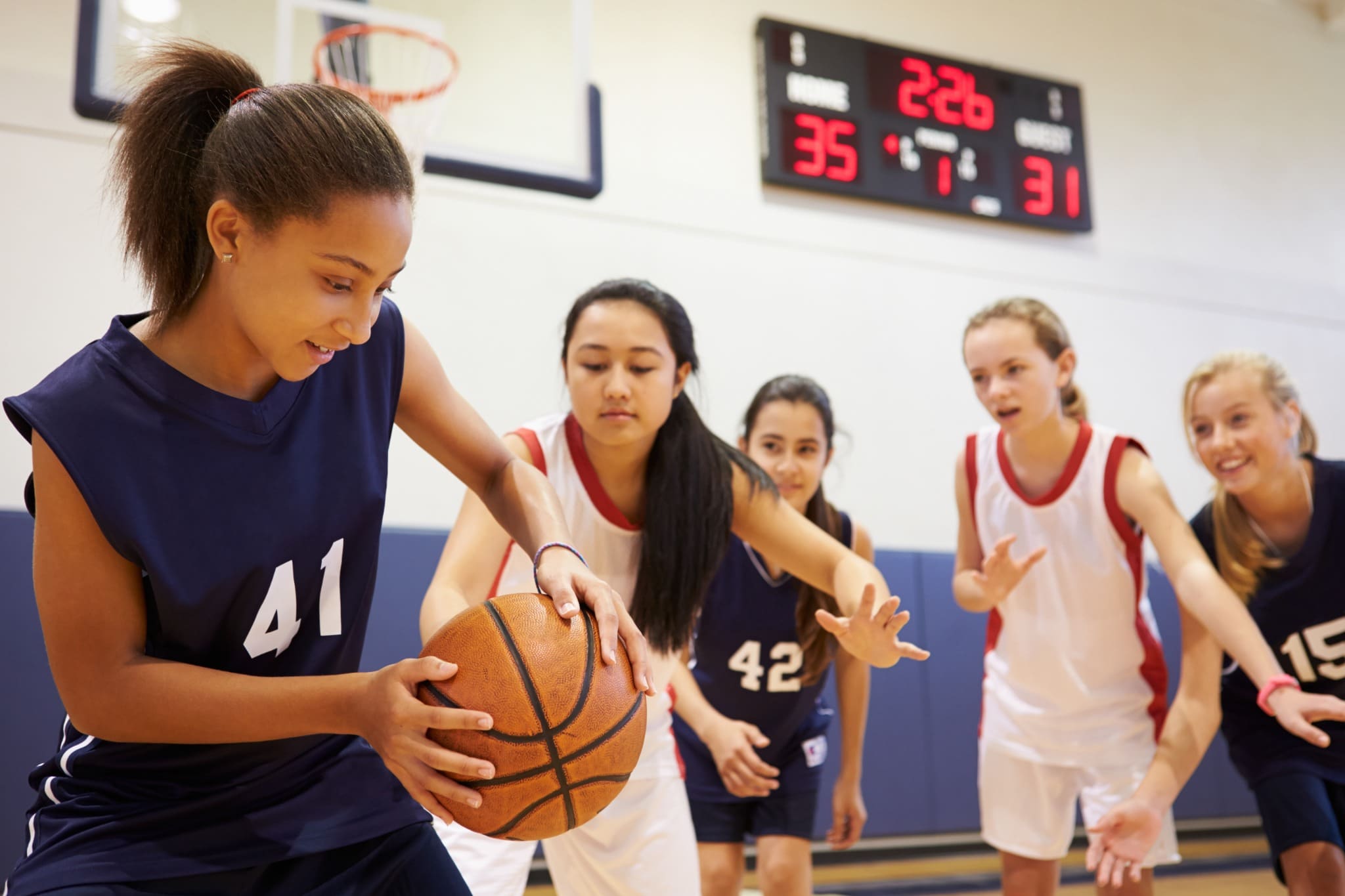Human Papillomavirus (HPV)
Long-term HPV infections are responsible for nearly 30,000 new cases of cancer in the US each year. These include not just cervical cancer but other cancers of the anogenital region as well as the throat. Even though about 90% of HPV infections are cleared by the immune system, this can still leave millions of people with long-term infections that can lead to cancer or other health problems. We do not know who will be in the 90% that can clear HPV infections, so we recommend that everyone be vaccinated against HPV in early adolescence (11-12 years of age) before they may even be exposed.


"HPV vaccines are highly effective and safe, and a powerful prevention tool for reducing HPV infections and HPV-associated cancers. ACIP recommends a 2-dose schedule for HPV vaccination of girls and boys who initiate the vaccination series at ages 9 through 14 years" - Advisory Committee on Immunization Practices, 2016
BACKGROUND
Long-term HPV infections are responsible for nearly 30,000 new cases of cancer in the US each year. These include not just cervical cancer but other cancers of the anogenital region as well as the throat. Even though about 90% of HPV infections are cleared by the immune system, this can still leave millions of people with long-term infections that can lead to cancer or other health problems. more than 2 million women with long-term infections that can lead to cancer or other health problems. We do not know who will be in the 90% that can clear HPV infections, so we recommend that everyone be vaccinated against HPV in early adolescence (11-12 years of age) before they may even be exposed.
RECOMMENDATION
Each year, nearly 14 million new HPV infections occur. These infections predominantly affect adolescents and young adults, both males and females, aged 15 to 24 years old. For most infections, HPV will be cleared by the immune system on its own. However, for infections that persist, HPV-associated cancers and/or genital warts can result.
HPV Vaccination has been promoted and recommended in the United States by public health officials and medical professionals since 2006. HPV vaccination has been shown to be one of the most effective methods to prevent cancer. Typically, HPV vaccination is strongly recommended for both male and female adolescents aged 11-12 years old however, catch up vaccination is recommended for females up to 26 years old, males up to 21 years old, and immuno-compromised individuals up to 26 years old.
All 11 and 12 year olds should receive HPV vaccine. We give the vaccine at these ages for three important reasons.
1). Getting your tween fully vaccinated before they turn 15 means they only need two HPV vaccine shots. If you wait until they are 15, they will need three shots.
2). HPV vaccine makes a stronger immune response when given younger, which means better protection if you do not wait to vaccinate.
3). Getting all three recommended vaccines (meningitis, HPV, and Tdap) at the same doctors visit means fewer visits for you and your tween. Long-term studies have shown that even when given at this age, the immune response against HPV infection is consistent even up to 10 years.
EFFECTIVENESS & SAFETY
In clinical trials with thousands of participants, HPV vaccine was over 98% effective in preventing cervical and other HPV-related pre-cancers. Preventing these pre-cancers is important because they are a necessary step to the development of cancer. HPV vaccine is well-tested for safety, including the monitoring of tens of thousands of people in clinical trials, and hundreds of thousand of vaccine recipients since the vaccine was recommended. The most common side effects after HPV vaccination are pain and redness at the injection site, fever, and headache. Just like for many other vaccines, some people who get HPV vaccine may feel light-headed or faint. We recommend staying seated after vaccination to help prevent fainting or falling. HPV vaccine has been recommended for adolescents for more than a decade, and has been routinely studied during, and before, that time. In one study of over 600,000 doses of HPV vaccine, there were no associations found with any of 8 conditions studied, including Guillain-Barre syndrome, seizures, or allergic reactions. In two other studies of over 300,000 HPV vaccine doses, the only conditions found to be associated with vaccination were fainting and skin infections where the vaccine was given.
OTHER CONCERNS
HPV vaccine is the best way to prevent cervical and other HPV-related cancers. Some cancers prevented by HPV vaccine can also be prevented through the use of Pap smears. However, those tests do not work to prevent all HPV-related cancers. We know that some parents may feel that 11-12 years old is too young for the HPV vaccine. However, the long-term cancer protection that is afforded by early vaccination is the best reason to have your child vaccinated today. We know that some parents may be concerned about HPV vaccination and sexual activity. In three separate studies of nearly 470,000 adolescents, there has been no increase in markers of sexual activity after HPV vaccination.
CONCLUSION
HPV vaccine is one of the most well-studied vaccines, and has consistently been found to be safe and effective in preventing HPV infections and the diseases they can cause in both males and females. HPV vaccine works best when it is given early, preferably at 11-12 years of age. Getting your child vaccinated against HPV today is a safe and effective way to prevent cancer.